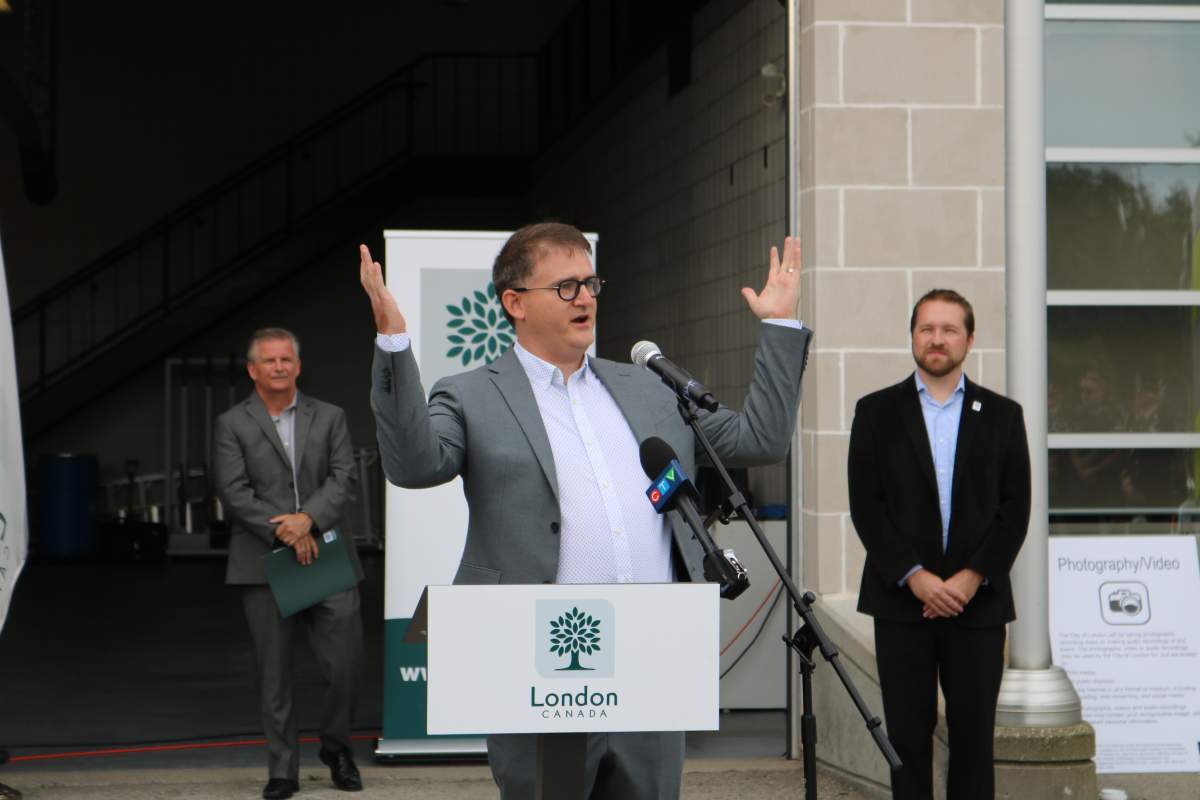Councillor and deputy mayor Jesse Helmer has some strong words for Premier Doug Ford over the unexpected push from the province to prevent municipalities from using ranked ballots in the next civic election — a system the City of London had already implemented for its 2018 election.

The change was included in a bill introduced in the Ontario legislature on Tuesday which largely focuses on measures to provide liability protection from COVID-19 exposure to workers, businesses and charities.
“It’s not something that the (Progressive) Conservatives campaigned on,” Helmer said.
“I think sometimes the premier forgets he’s the premier of Ontario and he acts like he’s the mayor of Toronto.”

Toronto had contemplated introducing a ranked ballot system for its 2022 municipal election. Both Kingston and Cambridge held a referendum on the issue in 2018, with their citizens choosing to adopt ranked ballots for the 2022 election.
As the City of Cambridge notes, “under the Ontario Municipal Act, referendum results are binding on the municipality when at least 50 per cent of all eligible electors vote on the question.”
Only 41 per cent of eligible voters cast ballots in the Kingston election and 33 per cent in the Cambridge election. However, Kingston still decided to move ahead with ranked ballots and The Cambridge Times reported in March 2019 that council voted to ask city staff to look into the feasibility of holding a ranked-ballot election and report back in 2020.

A spokesman for Municipal Affairs Minister Steve Clark said Tuesday that municipalities should not “experiment” with changes to municipal votes during the pandemic. The government says this measure will keep the electoral process consistent across municipal, provincial and federal elections.

Get breaking National news
“It’s a bit rich to hear from the province that we can’t be making changes in the middle of the pandemic when people have already made changes — they want to go ahead and now they’re the ones who are changing those plans. I think it’s a big waste of time. It’s a waste of the resources that people put into switching in the first place,” Helmer said, referencing costs incurred for consultation, public education, and new software.
“Now, people have used it, they understand how it works. It’s pretty easy — you just pick your first, second, third choices. And we just throw that all away because the province says, ‘Sorry, you can’t choose your elected officials that way?'”
In London’s ranked ballot system, voters have the ability to rank three mayoral and council candidates by preference — the most preferred candidate is marked as the first choice, the least preferred the third choice.
If, when ballots are counted for the first time, no mayoral or council candidate wins a majority — 50 per cent plus one — the candidate with the fewest first-choice votes is dropped off the ballot, and the second and third-place choices of that candidate’s supporters are then counted. This process continues until one candidate emerges with a majority.
In 2018, Ed Holder emerged victorious in the mayoral race after securing 44,373 votes in the 13th round, compared to Paul Paolatto’s final total of 31,061. Tanya Park dropped off the ballot before Paolatto with a total of 22,415 votes, and Paul Cheng dropped off the ballot before Park with a total of 19,616 votes.
Each time a candidate was eliminated, their votes were re-distributed to second and third options.
“Under the first-past-the-post system, you can get incumbents reelected with 25 per cent of the vote, 30 per cent of the vote. That means 70 per cent of people didn’t want that person yet they’re still reelected,” said Helmer.
“Here we have the province essentially protecting all the incumbent politicians that they like at the municipal level from change. And, you know, the people want change. They’re going to get it. I think the province is really underestimating how badly people want electoral reform.”
After learning about the province’s push to prevent municipalities from using ranked ballots in the 2022 election, Helmer started a petition late Tuesday afternoon that he says had gathered over 200 signatures by early Wednesday morning.
“It’s really unfortunate because if you keep an eye on what’s going on in Toronto, they’re moving towards ranked ballots. So, I mean, about the premier sometimes behaving like he’s the mayor of Toronto — I think he just wants to stop ranked ballots from happening in Toronto and all the other municipalities in the province have to suffer the consequences.”
The bill was introduced Tuesday and has only begun its process towards approval, however, the Progressive Conservatives have a majority government.
“I really hope they reconsider,” Helmer said.
— with files from The Canadian Press, Global News’ Matthew Trevithick and Kevin Nielsen, and Liny Lamberink.
- Industry experts question Saab’s pitch to bring 10,000 jobs to Canada
- U.S. national security strategy warns of ‘civilizational erasure’ in Europe
- Carney, Trump and Sheinbaum talk trade in Washington at FIFA World Cup draw
- Former Alberta premier Jason Kenney says politician recall legislation being misused












Comments